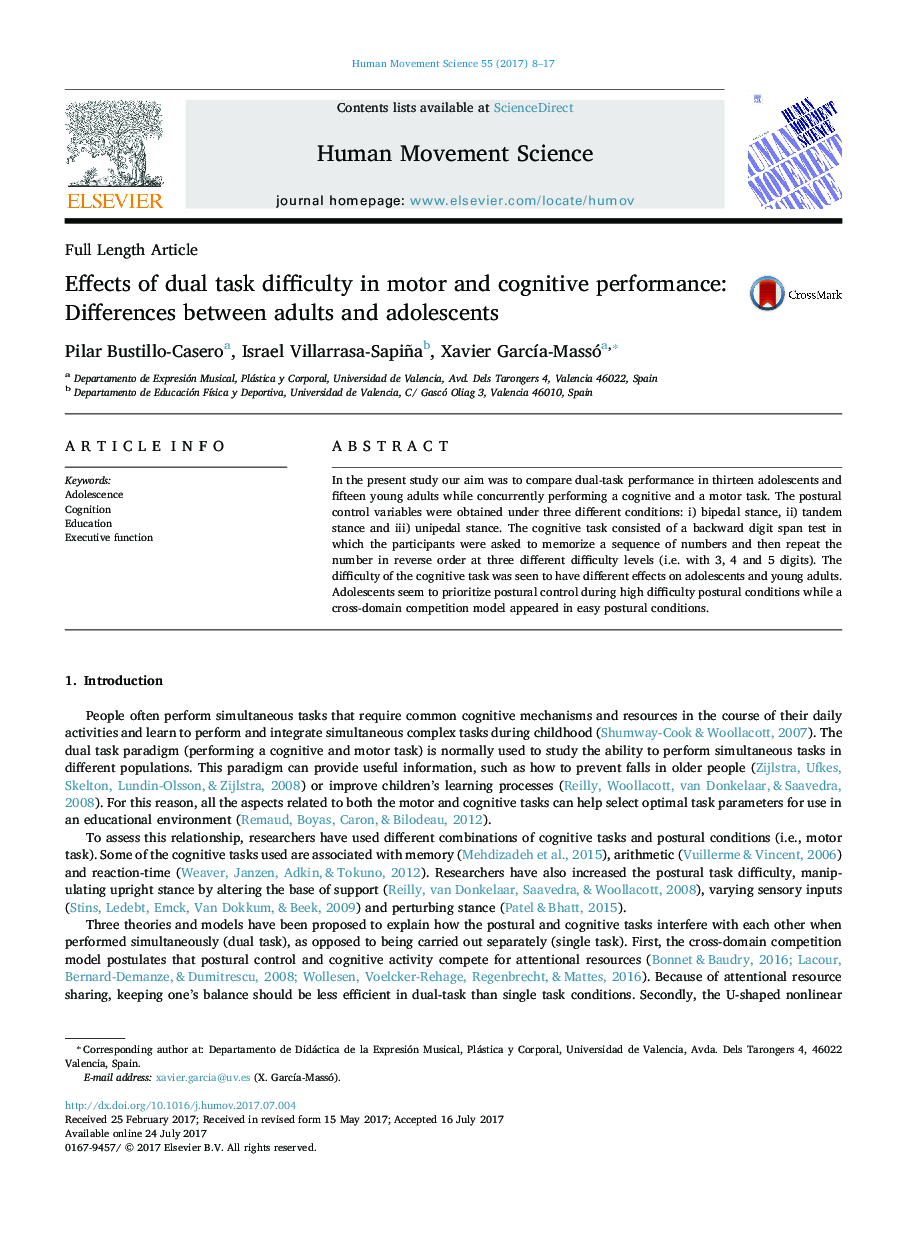| Article ID | Journal | Published Year | Pages | File Type |
|---|---|---|---|---|
| 5041924 | Human Movement Science | 2017 | 10 Pages |
â¢Dual-task did not produce a postural control disturbance in young adults.â¢Dual-task cost in adolescents was high during easy postural tasks.â¢In unipedal stance position dual-task did not affect postural control in adolescents.
In the present study our aim was to compare dual-task performance in thirteen adolescents and fifteen young adults while concurrently performing a cognitive and a motor task. The postural control variables were obtained under three different conditions: i) bipedal stance, ii) tandem stance and iii) unipedal stance. The cognitive task consisted of a backward digit span test in which the participants were asked to memorize a sequence of numbers and then repeat the number in reverse order at three different difficulty levels (i.e. with 3, 4 and 5 digits). The difficulty of the cognitive task was seen to have different effects on adolescents and young adults. Adolescents seem to prioritize postural control during high difficulty postural conditions while a cross-domain competition model appeared in easy postural conditions.
